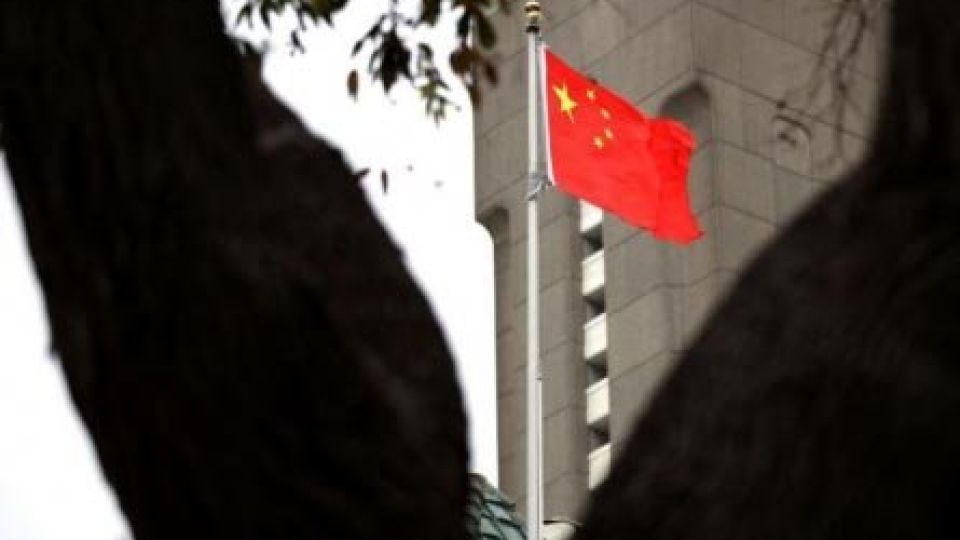April 17, 2023
SEOUL – The stern warnings issued by China ahead of Taiwanese President Tsai Ing-wen’s tour of the United States and Central America have highlighted the threat that intensifying Chinese pressure poses to the island’s security and stability. But the warnings also underscored the degree to which the ongoing US efforts to “on-shore” semiconductor manufacturing could cripple Taiwan’s economy at a critical time.
Taiwan’s security rests on two main pillars: self-governance and economic prosperity. Maintaining de facto sovereignty is non-negotiable, which rules out an accommodation that would placate China, at least under the current Chinese leadership. Even in the face of economic and diplomatic coercion, Taiwan is unlikely to relinquish its democratic system.
Taiwan’s dominance in semiconductor manufacturing is critical to its economic security. Taiwan currently produces over 60 percent of the world’s semiconductors and more than 90 percent of all high-end chips. But the current US efforts to promote domestic semiconductor manufacturing — reflected in the $280 billion CHIPS and Science Act — threatens to undermine the long-term competitiveness of the Taiwan Semiconductor Manufacturing Company, severely threatening the island’s so-called Silicon Shield.
The US semiconductor manufacturing push has inspired nervousness in Taiwan. TSMC founder Morris Chang recently backed the Biden administration’s imposition of sweeping export controls to curb Chinese advanced-chip production. But Chang says that he does not understand why the administration wants to move manufacturing from efficient Asian sites to the US.
Nevertheless, in an effort to escape a geopolitical quagmire, TSMC announced plans last year to invest $40 billion in a new fabricating plant in Arizona, which will drive up costs and could limit the company’s ability to make the massive investments in research and development needed to retain industry leadership. It is already clear that production costs are significantly higher in Arizona than in Taiwan, forcing TSMC to pass its additional costs to customers or accept lower profit margins, implying higher prices, reduced innovation, or both.
Moreover, the administration’s on-shoring and “friend-shoring” drive implies that the US does not view Taiwan as a reliable partner. As US Secretary of Commerce Gina Raimondo put it last year, “America buys 70 percent of its most sophisticated chips from Taiwan … (That is) downright scary and untenable.”
Drumming up fears that Taiwan is in danger undercuts business confidence and could undermine Taiwan’s economic prosperity and hurt global chip production. The global semiconductor supply chain would be more resilient with a prosperous, innovative TSMC. But that requires the US to stop eroding Taiwan’s strategic position as a tech powerhouse.
To be sure, US politicians have been increasingly vocal in their support for Taiwan in recent years. But this newfound enthusiasm is largely symbolic and intended for domestic consumption by voters who favor a more aggressive US stance toward China. Such political posturing does not help Taiwan. Provocative acts, like former Speaker of the House Nancy Pelosi’s visit to Taiwan last year and the April 5 meeting between Tsai and current House Speaker Kevin McCarthy, threaten the delicate status quo that has enabled Taiwan to maintain its de facto sovereignty and protect its way of life.
Chinese leaders have long asserted the mainland’s sovereignty over Taiwan and insisted that reunification is inevitable. Paradoxically, it is the US government’s endorsement of and adherence to this official “one China” narrative that has kept Taiwan safe. Dropping the facade, ostensibly in support of Taiwan, would make the island’s geopolitical position even more tenuous.
Instead of grandstanding, what Taiwan needs from the US is a bilateral free-trade agreement and support for Taiwan’s membership in regional trade agreements such as the Indo-Pacific Economic Framework for Prosperity and the Comprehensive and Progressive Agreement for Trans-Pacific Partnership.
There are also steps that Taiwan could take on its own, like continuing to invest in asymmetrical defense capabilities, cyber and critical infrastructure, and military training. Economically, the island could benefit from the ongoing decoupling between China and Western countries by positioning itself as one of the world’s largest manufacturing powerhouses.
But first, Taiwan needs to buy itself some time. The current tug-of-war between the US and China leaves Taiwanese policymakers with little room for maneuver. At present, there is no scenario in which the “Taiwan question” is resolved in a way that satisfies the needs of all parties. While it is vitally important that Taiwan remains a prosperous tech hub and a democratic society, this outcome is far from guaranteed.
The US intelligence community believes that China will invade Taiwan by 2027. With the right policy response, however, the US can prevent this catastrophe and push the resolution of the “Taiwan question” far into the future. But a shift in US policy toward “containing” China would invite rather than postpone the island’s day of reckoning, and could lead Taiwan — and the world — down a perilous path.
Chang-Tai Hsieh is professor of economics at the University of Chicago Booth School of Business. Jason Hsu, a former at-large member of Taiwan Legislative Yuan (parliament), is a senior research fellow at the Ash Center for Democratic Governance and Innovation at Harvard Kennedy School and a visiting scholar at the Paul Tsai China Center at Yale Law School. — Ed.
(Project Syndicate)


